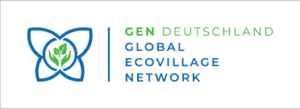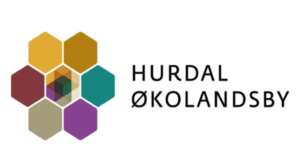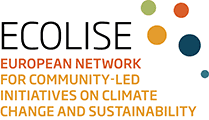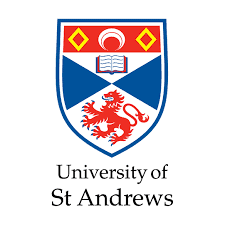Project Summary
Now is the time for action. Climate change is a reality and young people tell us of the climate emergency with despair. Fires across the globe are causing a loss of biodiversity, with animals and plants disappearing each day. Systemic change is required to address the environmental problems and ensure that all people, including the most vulnerable, are supported to live fulfilling lives. The answers will not derive only from international organisations, governments and politicians. Communities, citizens, NGOs and other forms of civil society hold many of the solutions. This project aims to showcase and scale up many of the strategies and lessons developed by communities while developing the resources, learning programmes and other tools to enable such community lessons to be exchanged.
Ecovillages shine like lighthouses on the rocky cliffs above the rising sea of potential environmental and societal hazards. These intentional communities act as living laboratories in which new ideas can be nurtured and trialled; where people can learn how to live and work together and prosper whilst living lightly upon the earth. The Global Ecovillage Network (GEN) connects these beacons of community endeavour, illuminating pathways into the future around the globe. GEN works with individuals, small projects, schools, existing villages, intentional communities, urban neighbourhoods, local and national authorities. The Transition Town movement and Permaculture movement offer further frameworks and networks through which these groups can share ideas and practices. Universities and colleges are developing critical models and assessing practices for a better future.
However, the urgency and magnitude of the challenges that we face require a greater collective response. We explore here how ecovillages, community-led initiatives, local government and local academic institutions can collaborate to scale both horizontally and vertically in order to catalyse regional sustainability innovation.
The ETIA project is about spreading and scaling an ecovillage approach to local development and regeneration, by developing materials, curricula and a training designed to use and apply the Ecovillage Approach in different contexts and in collaboration with a diversity of stakeholders.
The project aligns with both the aspirations and the practical focus of the UN sustainable development goals (SDGs). We begin with the lessons learned in sustainable communities (SDG 11) and explore how we can work through partnership (SDG 17) using education (SDG 4) and strong institutions and good governance (SDG 16) to address poverty (SDG1), hunger (SDG2), health and wellbeing (SDG3), gender (SDG5), water and sanitation (SDG6), affordable clean energy (SDG7), decent work (SDG8), infrastructure (SDG9) and responsible consumption and production (SDG12) whilst living within environmental limits through supporting climate action (SDG13), life below water (SDG14) and life on land (SDG15). In this way, we recognise the interconnectedness of the SDGs and we develop a particular relationship between them to share knowledge and practices. We employ resources that have been developed by our partners, such as the GEN Map of Regeneration, Transition Network guides and Permaculture design principles, to support this process.
Project Working Groups
IO1 Ecovillage Transition Toolkit
IO1 – a toolkit to collate and curate knowledge and practices in ecovillages and community-led initiatives can integrate with local government institutions and processes (municipalities, regional municipalities, local authorities and community councils as appropriate) to catalyse regional innovation and impacts in line with the SDG aspirations and actions. The educational exercises and tools previously developed in other Erasmus+ partnerships like T2R, CLIPS and SIRCle can provide core ingredients, as will the foundational tools of the Map of Regeneration (with the Ecovillage Design Cards) and the Journey of Regeneration. In addition, new tools and knowledge creation will be fed into the Toolkit.
IO2 Curricula
IO2 – a curriculum offering fresh framings for different actors to work with communities and across sectors for bioregional transformation and restoration. Individuals from ecovillages, community led initiatives, local government and local colleges or universities can come together to learn how to design and implement local and bioregional regeneration in line with the Ecovillage Principles and the SDGs.
IO3 ToT
IO3 – a train the trainer programme to equip facilitators with the tools, skills and competencies to facilitate local and regional processes of transformation and regeneration.
IO4 Navigator
IO4 – a navigating tool for participants to assess the extent to which they have developed the competencies to achieve regional sustainability OR – the goals and targets of their collaboration within the framework of the Ecovillage Principles and SDGs.The Navigation Tool builds on the Ecovillage Impact assessment, linked into SDG assessment tools for local municipalities to track progress in implementation and help communities and municipalities to tweak their processes and designs. The eight Ecovillage Whole Systems Design Principles might be helpful in describing the process.
Stay tuned! All outputs developed by the 4 working groups will be made available here for free download within the next few weeks.
Project Partners
Global Ecovillage Network (GEN) International
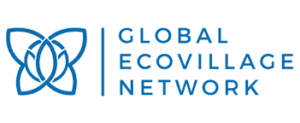
Global Ecovillage Network Germany
